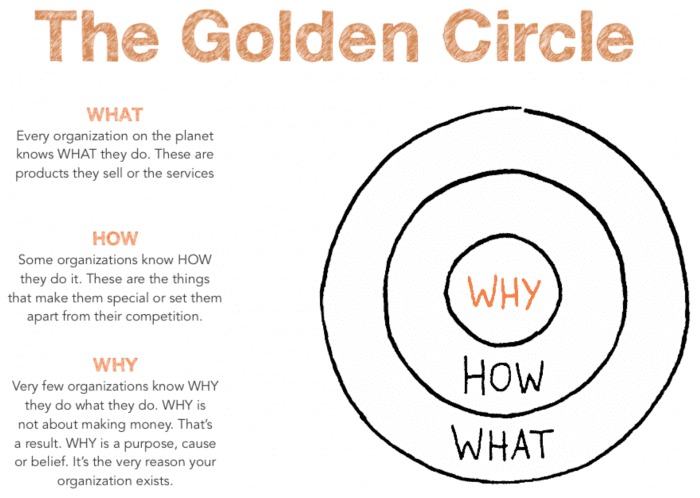In this blog post, we will summarise Sinek’s ideas on the importance of “why” and how it can be applied to businesses and organisations.
According to Sinek, most organizations focus on what they do or how they do it, rather than why they do it. He argues that this approach is flawed because it doesn’t create a compelling reason for people to buy into the organisation’s vision or purpose. Instead, Sinek suggests that organizations should start by identifying their “why” – their reason for existing – and use this to guide their decisions and actions.
Sinek’s concept of “why” is not just about making money or achieving success. Instead, it’s about creating a deeper sense of meaning and purpose that inspires people to take action. When an organization has a clear sense of why they exist, they can communicate this to their employees and customers, creating a sense of loyalty and commitment that goes beyond just selling a product or service.
To illustrate his point, Sinek uses the example of Apple. He argues that Apple’s success is not just because they make great products, but because they have a clear sense of why they exist: to challenge the status quo and think differently. This purpose has inspired millions of people around the world to become loyal Apple customers, even when their products are more expensive than their competitors.
In conclusion, Simon Sinek’s concept of “why” is a powerful tool for businesses and organizations to create a sense of purpose and inspire action. By focusing on their reason for existing, rather than just what they do or how they do it, organizations can create a deeper connection with their employees and customers, leading to long-term success and growth.

